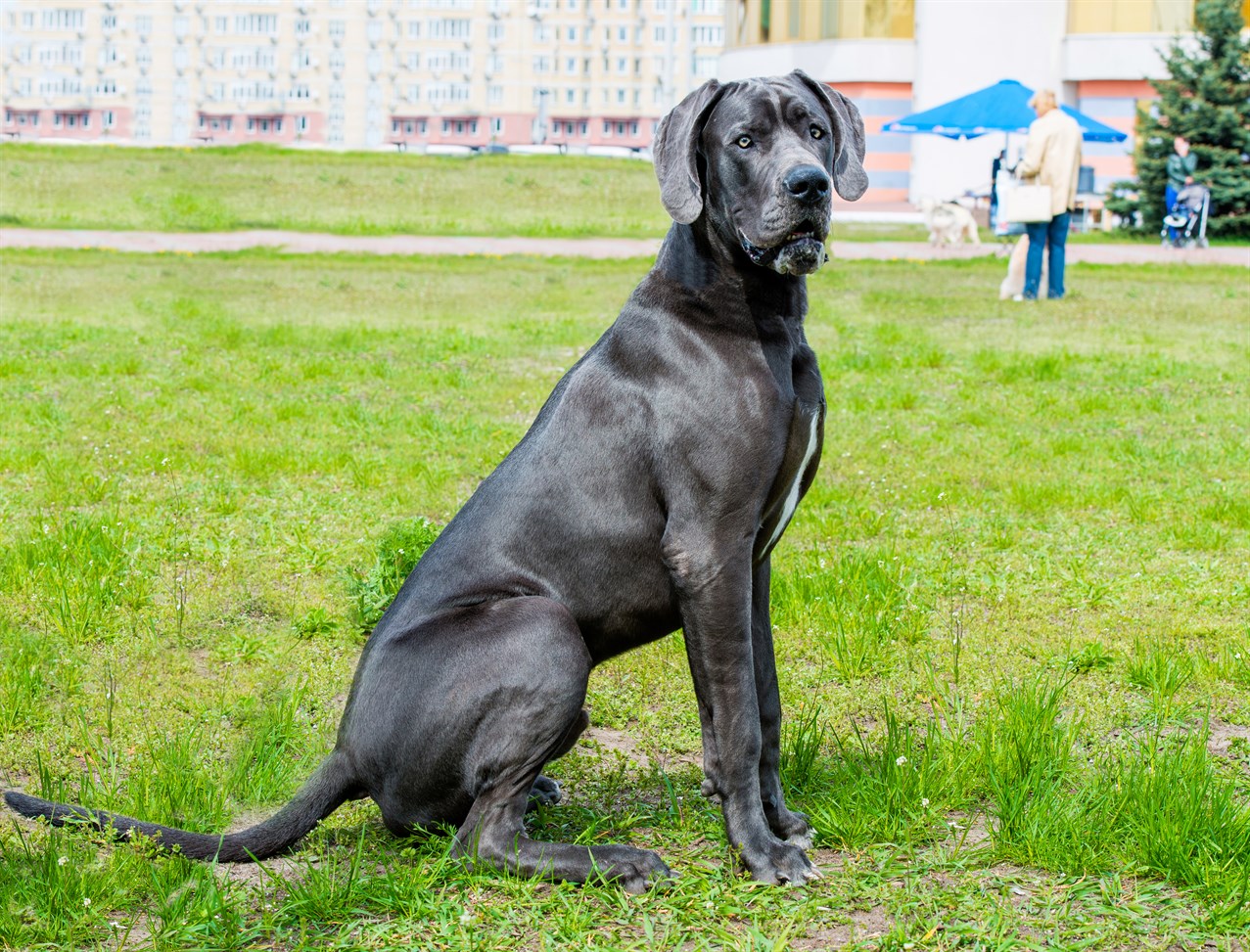Disadvantages of Owning a Great Dane

While Great Danes are beloved for their gentle nature and affectionate personalities, they come with some downsides and challenges that prospective owners should be aware of. Here are some disadvantages to owning a Great Dane.
Size and Space Requirements
Great Danes are one of the largest dog breeds, and their size can be a disadvantage for those living in small apartments or homes with limited space. They require ample room to move around comfortably.
Health Concerns
Great Danes are prone to certain health issues, including bloat, heart disease, hip dysplasia, and bone cancer. These health concerns can result in high veterinary bills and emotional stress.
Short Lifespan
Great Danes have a relatively short lifespan compared to smaller breeds. Their lifespan typically ranges from 7 to 10 years, which can be heartbreaking for owners who form strong bonds with their pets.
Exercise Needs
While they are not overly active, Great Danes still require daily exercise and mental stimulation. Owners must commit to providing regular exercise to prevent boredom and obesity.
Gentle Giants
Their size can be intimidating to some people, which can lead to unwarranted fear or prejudice. Owners need to be mindful of their dog's impact on others, especially in public settings.
Drool and Mess
Great Danes are known for their propensity to drool, which can be messy and require frequent clean-up. Additionally, their size can lead to more significant messes, including larger droplets and hair.
Training and Socialisation
Great Danes, like all dogs, require training and socialisation to become well-mannered companions. Their size means that untrained behaviour can become a significant problem.
What not to do with a Great Dane?
When owning a Great Dane, it's essential not to:
- Neglect Their Exercise Needs: Avoid underestimating the importance of daily exercise. Inadequate exercise can lead to obesity and behavioural problems.
- Overfeed: Great Danes are prone to obesity, so it's crucial not to overfeed them. Follow a balanced diet and monitor their weight to maintain their health.
- Skip Socialisation: Proper socialisation is essential for Great Danes. Avoid skipping this crucial step in their development to prevent fear or aggression towards people or other dogs.
Who should not get a Great Dane?
Great Danes may not be suitable for everyone. Here are some considerations:
- People with Limited Space: If you live in a small apartment or have limited outdoor space, a Great Dane may not be the best choice due to their size and exercise needs.
- Individuals with Allergies: While Great Danes have low-shedding coats, they can still trigger allergies in some individuals. Spend time with the breed to ensure compatibility.
- Novice Dog Owners: Great Danes are a large breed with specific needs and potential health concerns. Novice dog owners should carefully consider their ability to meet these requirements.
- Those with Limited Mobility: Great Danes may be difficult to handle for individuals with limited physical mobility, especially when they reach their full size.
Despite these challenges, many people find great joy and companionship in owning Great Danes. It's essential to be aware of the downsides and responsibilities associated with this breed and to be prepared to provide the love, care, and attention they deserve.
Great Dane puppies for sale
- Find Great Dane puppies for sale in ACT
- Find Great Dane puppies for sale in NSW
- Find Great Dane puppies for sale in NT
- Find Great Dane puppies for sale in QLD
- Find Great Dane puppies for sale in SA
- Find Great Dane puppies for sale in TAS
- Find Great Dane puppies for sale in VIC
- Find Great Dane puppies for sale in WA